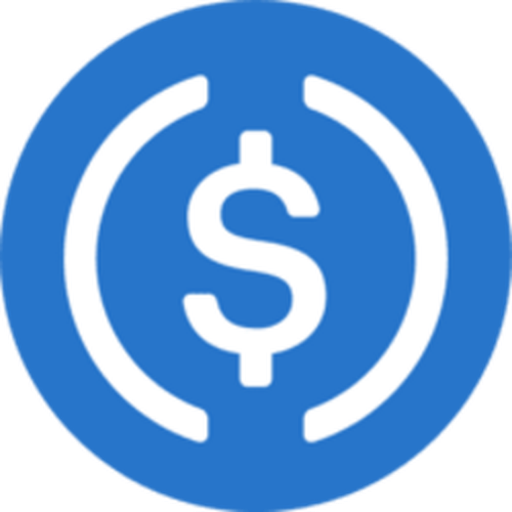USDC vs Bitget Token – Price, Market Cap & Performance Compared
Which coin performs better – USDC or Bitget Token?
We compare the current price (0.99971 $ vs 5.33 $), market cap (74 153 765 385 vs 3 730 938 166) and all-time high (1.17 vs 8.45).
Find out which one stands out right now!
USDC is currently trading at 0.99971 $, while Bitget Token stands at 5.33 $. These cryptocurrencies differ not only in price but also in market presence.
The market cap of USDC is around 74 153 765 385, and Bitget Token has about 3 730 938 166. Their respective all-time highs are 1.17 for USDC and 8.45 for Bitget Token.
Daily trading volume and the 24h price change (-0.00009 % vs 1.46726 %) also offer key insights.
Compare all metrics now and see which coin fits your investment strategy best!
USDC
USD Coin (USDC) is a stablecoin that is pegged to the US dollar, offering a consistent value and reducing the volatility often associated with cryptocurrencies. It provides a crucial bridge between traditional financial systems and digital currency markets, facilitating easy and secure transactions. USDC's foundation on blockchain technology ensures transparency and enhances trust among users and institutions.
more informationBitget Token
Bitget Token is an integral part of the Bitget trading platform, primarily designed to enhance user engagement and improve overall trading experience. This token facilitates cost efficiency by offering reduced trading fees and exclusive access to various features on the platform. Its role in governance also allows holders to have a say in platform decisions, making it a community-centric digital asset.
more information

|

|
|
|
|
General Information |
|
|---|---|
|
Title
USDC
|
Title
Bitget Token
|
|
Symbol
usdc
|
Symbol
bgb
|
|
Whitepaper
-
|
Whitepaper
-
|
|
Website
|
Website
|
|
Community
-
|
Community
|
|
Last Updated
2025-09-24 23:29
|
Last Updated
2025-09-24 23:29
|
Price Data |
|
|---|---|
|
Current Price $
0.99971 $
|
Current Price $
5.33 $
|
|
High 24h
0.99972 $
|
High 24h
5.39 $
|
|
Low 24h
0.99960 $
|
Low 24h
5.18 $
|
|
Price Change 24h
0.00000 $
|
Price Change 24h
0.07706 $
|
|
Price Change % 24h
-0.00009 %
|
Price Change % 24h
1.46726 %
|
Market Data |
|
|---|---|
|
Market Cap
74 153 765 385
|
Market Cap
3 730 938 166
|
|
Total Volume
10 559 655 699
|
Total Volume
379 483 356
|
|
Market Cap Change 24h
159 815 467
|
Market Cap Change 24h
56 699 313
|
|
Market Cap Change % 24h
0.21598 %
|
Market Cap Change % 24h
1.54316 %
|
|
Return on Investment (ROI)
-
|
Return on Investment (ROI)
-
|
Supply and Availability |
|
|---|---|
|
Circulating Supply
74 175 659 818
|
Circulating Supply
699 992 036
|
|
Total Supply
74 172 355 958
|
Total Supply
919 992 036
|
|
Max Supply
-
|
Max Supply
2 000 000 000
|
Historical Data |
|
|---|---|
|
All Time High (ATH)
1.17
|
All Time High (ATH)
8.45
|
|
ATH Change %
-14.75232 %
|
ATH Change %
-37.03126 %
|
|
ATH Date
2019-05-08 00:40
|
ATH Date
2024-12-27 11:41
|
|
All Time Low (ATL)
0.87765
|
All Time Low (ATL)
0.01428
|
|
ATL Change %
13.90744 %
|
ATL Change %
37 164 %
|
|
ATL Date
2023-03-11 08:02
|
ATL Date
2020-06-25 04:17
|
USDC
Understanding USDC: A Stablecoin in the Volatile Crypto World
USDC, or USD Coin, is a prominent stablecoin in the cryptocurrency market. Issued by Circle and backed by fully reserved assets, USDC is designed to maintain a 1:1 value ratio with the US Dollar, making it a reliable digital dollar. The stablecoin ecosystem plays a crucial role in the broader cryptocurrency industry by providing a less volatile alternative to traditional cryptocurrencies like Bitcoin and Ethereum.
The Evolution of USDC
Launched in 2018, USDC was developed as part of a collaboration between Circle and Coinbase, two major forces in the cryptocurrency space. Since its inception, USDC has seen significant growth and adoption, becoming one of the leading stablecoins alongside Tether (USDT) and Binance USD (BUSD). While its all-time high reached $1.17 in May 2019, this was more of an anomalous spike that reinforced the need for rigorous controls to maintain stability around its intended $1 peg.
Pros of Using USDC
One of the primary advantages of USDC is its transparency and regulatory compliance. Circle, the company behind USDC, undergoes regular audits and publishes monthly attestations of its reserves, ensuring users that each USDC token is truly backed by a dollar or dollar-equivalent asset held in reserve. This transparency fosters trust and helps mitigate the volatility that plagues much of the crypto market.
Furthermore, USDC serves as a bridge between traditional finance and the blockchain world. It's used widely in Defi applications, allowing decentralized lending, borrowing, and trading while maintaining value stability. Additionally, USDC's integration into various wallets and exchanges worldwide adds to its utility and liquidity.
Cons of USDC
Despite its advantages, USDC is not without its drawbacks. One of the critical concerns involves regulatory risks, as stricter regulations on stablecoins could impact its future operations. Also, as a centralized stablecoin, USDC is subject to censorship concerns, where accounts can be frozen, diverging from the decentralized ethos that underlies most cryptocurrencies.
Another drawback is that, unlike decentralized alternatives, USDC requires a level of trust in the issuer, Circle. Any potential mismanagement or economic instability affecting Circle could, in theory, impact its ability to maintain the 1:1 peg, a risk inherent to any centralized stablecoin.
Past Performance and Market Impact
USDC has generally maintained its peg effectively, with minor fluctuations typically remaining within a tight range around $1. Its stability has been pivotal during periods of crypto market volatility, where it serves as a safe haven for investors looking to escape market downturns without exiting the crypto ecosystem.
In terms of market cap, USDC has experienced exponential growth, driven by increased adoption in the decentralized finance (Defi) space and demand for stable trading pairs. Despite being eclipsed by Tether (USDT) in terms of market share, USDC's reputation for transparency gives it a competitive edge.
Future Outlook for USDC
Looking ahead, USDC's future appears promising but laden with challenges. The growing scrutiny from regulators worldwide could result in regulatory changes impacting its operations. However, Circle's proactive approach to compliance and regulation may shield USDC from adverse outcomes.
The stablecoin's role in facilitating seamless transactions and enabling innovative financial products in the Defi space will likely continue to drive its utility and adoption. Moreover, as traditional financial institutions begin to explore blockchain technology, USDC could play a critical role in bridging the two worlds.
In summary, USDC's stability, transparency, and integration with both traditional and decentralized finance systems position it as a key player in the ongoing evolution of digital finance. However, navigating regulatory landscapes and maintaining trust will be crucial for its sustained success.
Bitget Token
Understanding the Bitget Token (BGB): A Comprehensive Overview
The Bitget Token (BGB) is a utility token that powers the Bitget ecosystem, primarily used on the Bitget exchange platform. It serves various purposes including transaction fee discounts, token staking, and participation in exclusive activities. This leads to increased demand among users of the Bitget exchange, enhancing its utility and potentially influencing its market value.
Historical Performance and Market Evolution
Bitget Token has experienced significant market volatility since its inception. The token reached an all-time low of $0.0143 on June 25, 2020. Since then, it has seen substantial growth, peaking at an all-time high of $1.48 on June 1, 2024. Despite the current price of $1.18, down approximately 20.1% from its ATH, the token's overall market trend has been upward, demonstrating robust resilience and investor interest.
The circulating supply of Bitget Token stands at 1,400,001,000 out of a total potential supply of 2 billion tokens, showing a healthy distribution and circulation in the market, with a significant market capitalization of $1,655,979,913. Such metrics reflect the token's acceptance and adaptability within the crypto community.
Advantages of Bitget Token
The Bitget Token offers several advantages for its users. Primarily, it provides holders with transaction fee discounts on the Bitget exchange, which is a notable attraction for frequent traders. Additionally, BGB holders can participate in exclusive platform features like staking and launchpool investments. This utility enhances the token's intrinsic value and boosts its adoption among users of the Bitget ecosystem.
Another compelling advantage of BGB is its backing by the Bitget exchange, which is known for its user-friendly interface and robust security features. This affiliation provides a level of trust and reliability that can be crucial for potential investors.
Potential Drawbacks of Bitget Token
Despite its numerous benefits, Bitget Token is not without its drawbacks. As with many utility tokens, the value of BGB is intrinsically linked to the popularity and performance of the Bitget exchange. Should the platform experience a decline in usage or encounter regulatory issues, the token's value could be adversely affected.
Additionally, like many cryptocurrencies, Bitget Token is subject to market volatility which can result in significant price fluctuations. This can pose a risk to investors who might be seeking more stable investment opportunities.
Future Prospects and Potential Developments
Looking ahead, the future of Bitget Token appears promising. The continued growth of the Bitget exchange could further solidify BGB's standing in the crypto market. Developments like expanding the platform's user base, introducing new trading features, and establishing strategic partnerships could enhance the token's utility and demand.
However, it will be crucial for the Bitget team to navigate regulatory landscapes carefully, maintain robust security measures, and constantly innovate to keep its offerings attractive to users. If successful, these strategies can contribute to the long-term sustainability and appreciation of the Bitget Token.

